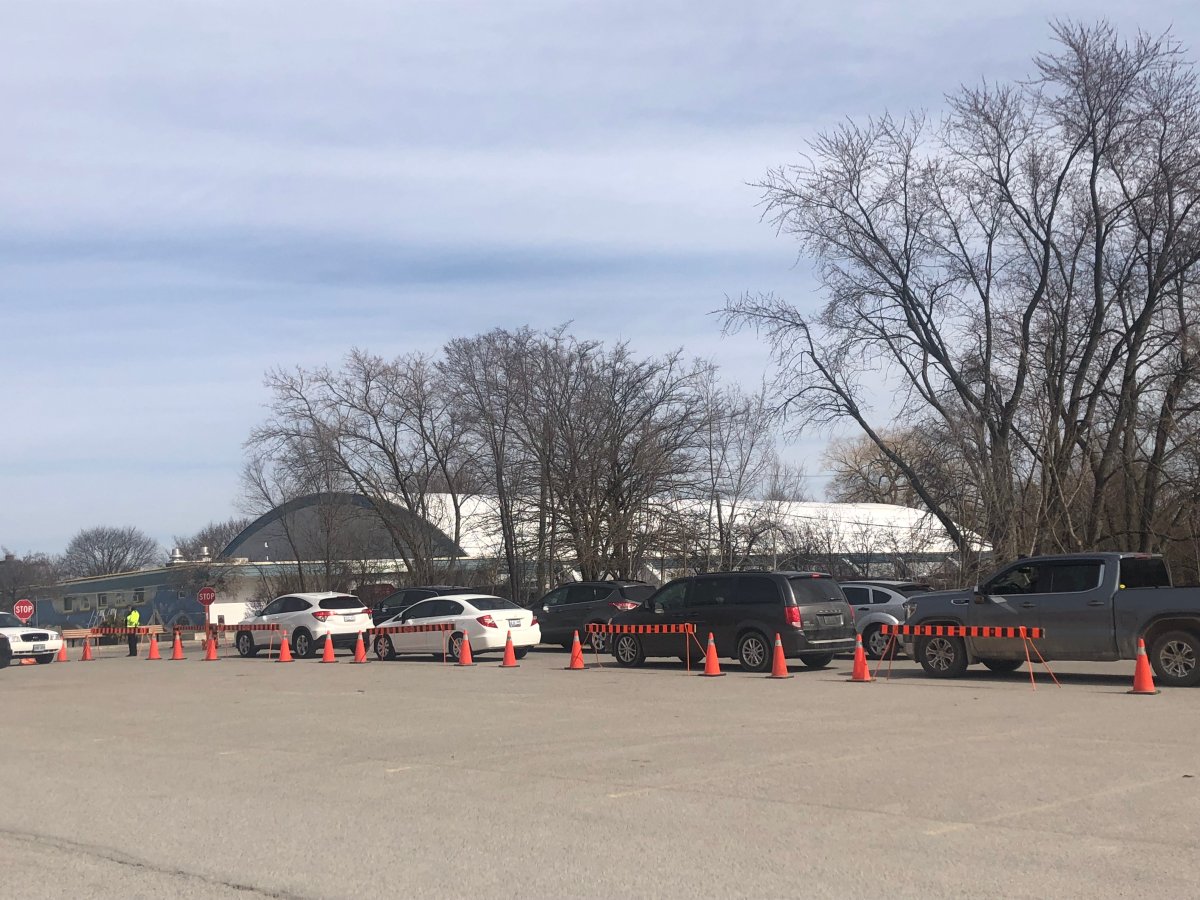The Middlesex-London Health Unit (MLHU) opened a COVID-19 assessment centre at London’s Oakridge Arena Monday morning.

The assessment centre allows residents to be seen by a health-care provider for COVID-19-related concerns instead of visiting an emergency department, urgent care centre or family doctor’s office.
In a statement, the MLHU noted there will be no testing done at the London COVID-19 assessment centre.
The purpose of the centre is to provide education and medical guidance about the virus as well as triage individuals and determine the next steps of their care.
The centre will be open seven days a week from 11 a.m. to 7 p.m. at 825 Valetta St.

Get weekly health news
Before visiting an assessment centre, the health unit and its partners recommend, if possible, using the province’s self-assessment tool online or calling Telehealth at 1-866-797-0000 for a telephone consultation if you are exhibiting symptoms.
The centre is operated in partnership with the MLHU, London Health Sciences Centre and St. Joseph’s Health Care London, with the help of Middlesex-London EMS, the Thames Valley Health Team and Middlesex Hospital Alliance.
- Something’s fishy: 1 in 5 seafood products are mislabelled, study finds
- After controversial directive, Quebec now says anglophones have right to English health services
- Why non-alcoholic beer is gaining steam at Oktoberfest: ‘Nobody will judge you’
- Recall expands for Nutrabolics vegan bars over undeclared milk
The health unit still recommends going to the hospital in the event of a medical emergency or severe respiratory illness that involves symptoms of shortness of breath, being unable to catch your breath, severe fever that does not change with Tylenol or acetaminophen and/or being physically unable to get out of bed.
Confused about COVID-19? Here are some things you need to know:
Health officials say the risk is low for Canadians but warn this could change quickly. They caution against all international travel. Returning travellers are asked to self-isolate for 14 days in case they develop symptoms and to prevent spreading the virus to others.
Symptoms can include fever, cough and difficulty breathing — very similar to a cold or flu. Some people can develop a more severe illness. People most at risk of this include older adults and people with severe chronic medical conditions like heart, lung or kidney disease. If you develop symptoms, contact public health authorities.
To prevent the virus from spreading, experts recommend frequent handwashing and coughing into your sleeve. And if you get sick, stay at home.
For full COVID-19 coverage from Global News, click here.
— With files from Global News’ Andrew Graham


















Comments